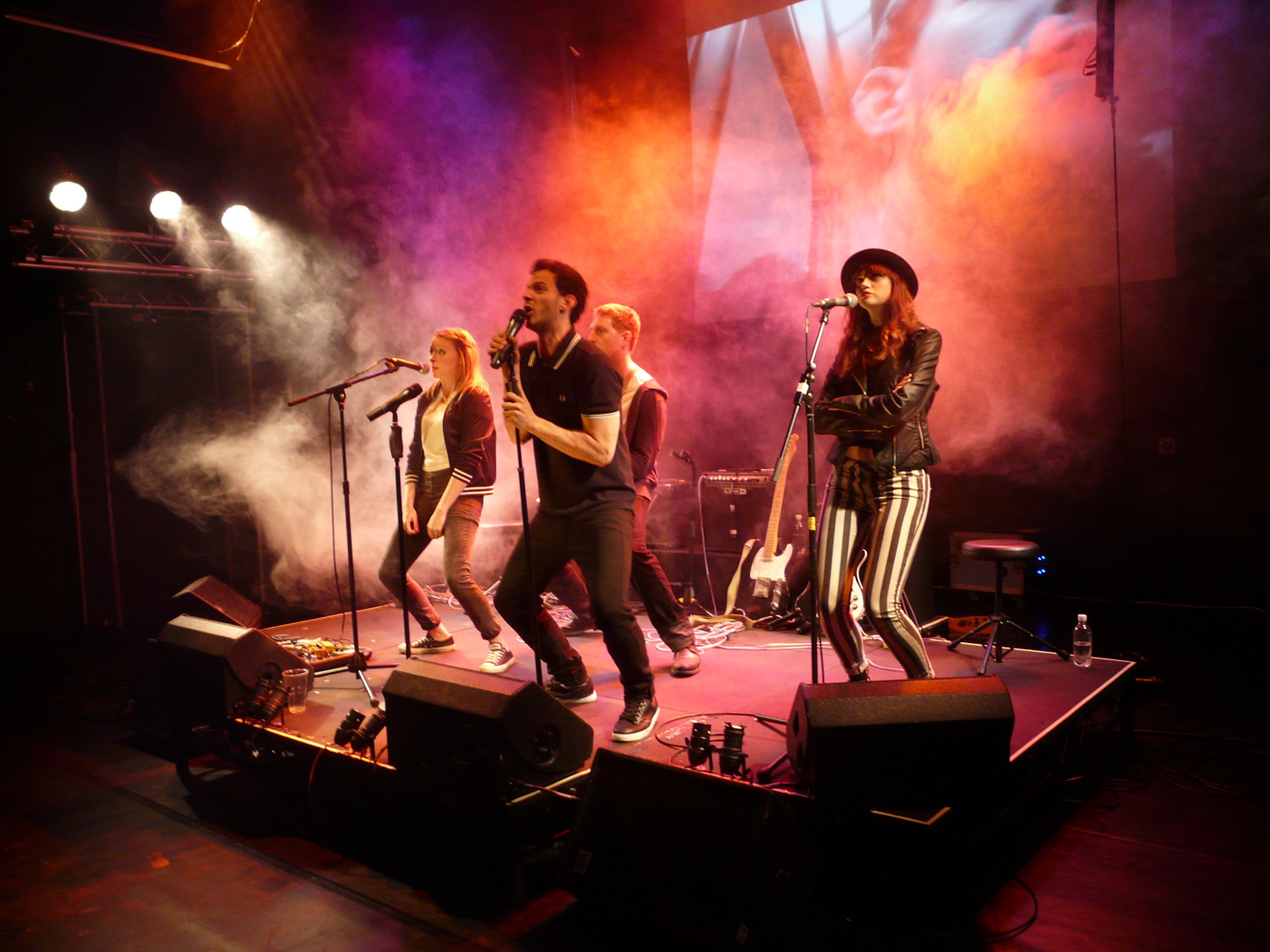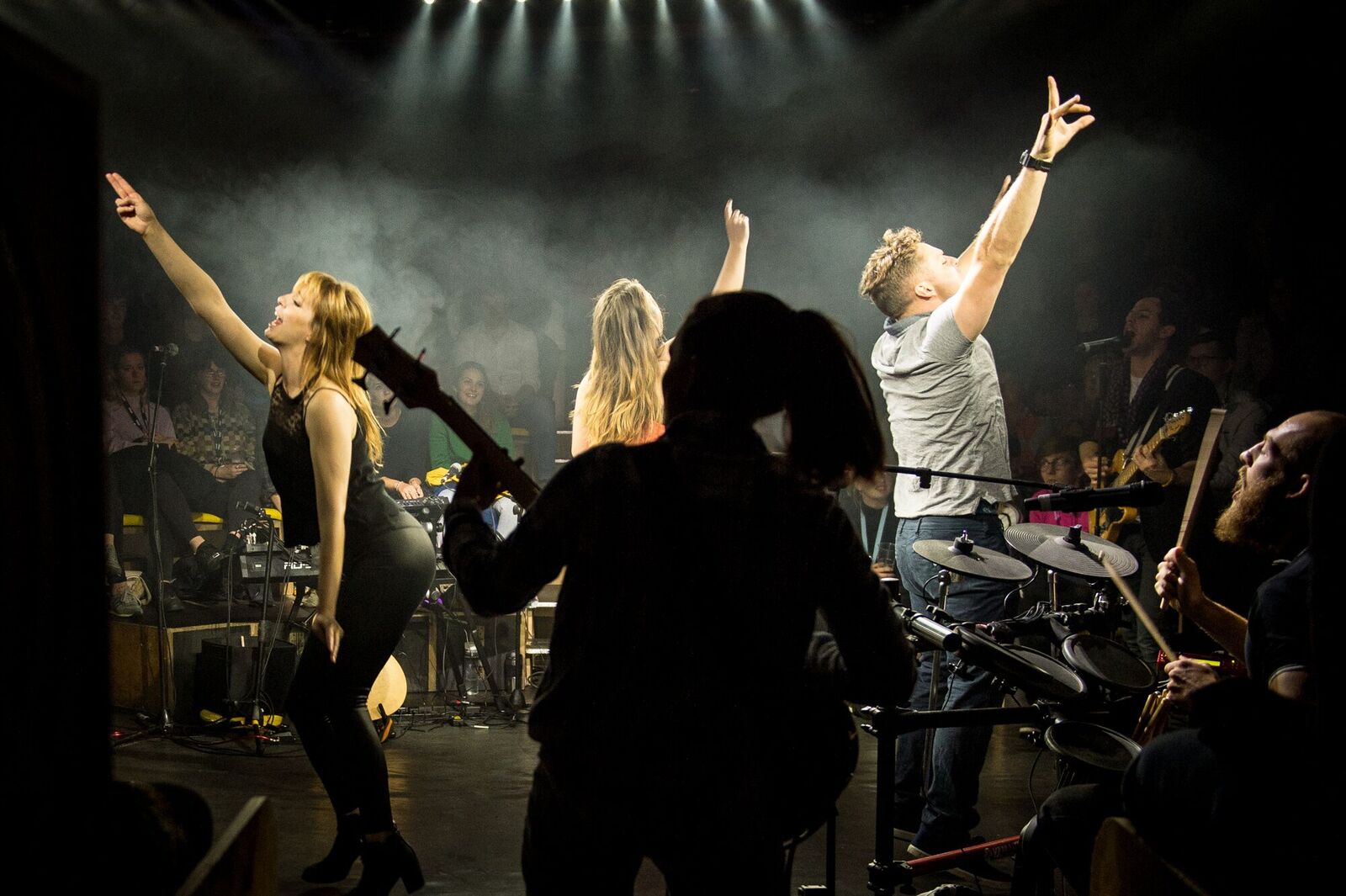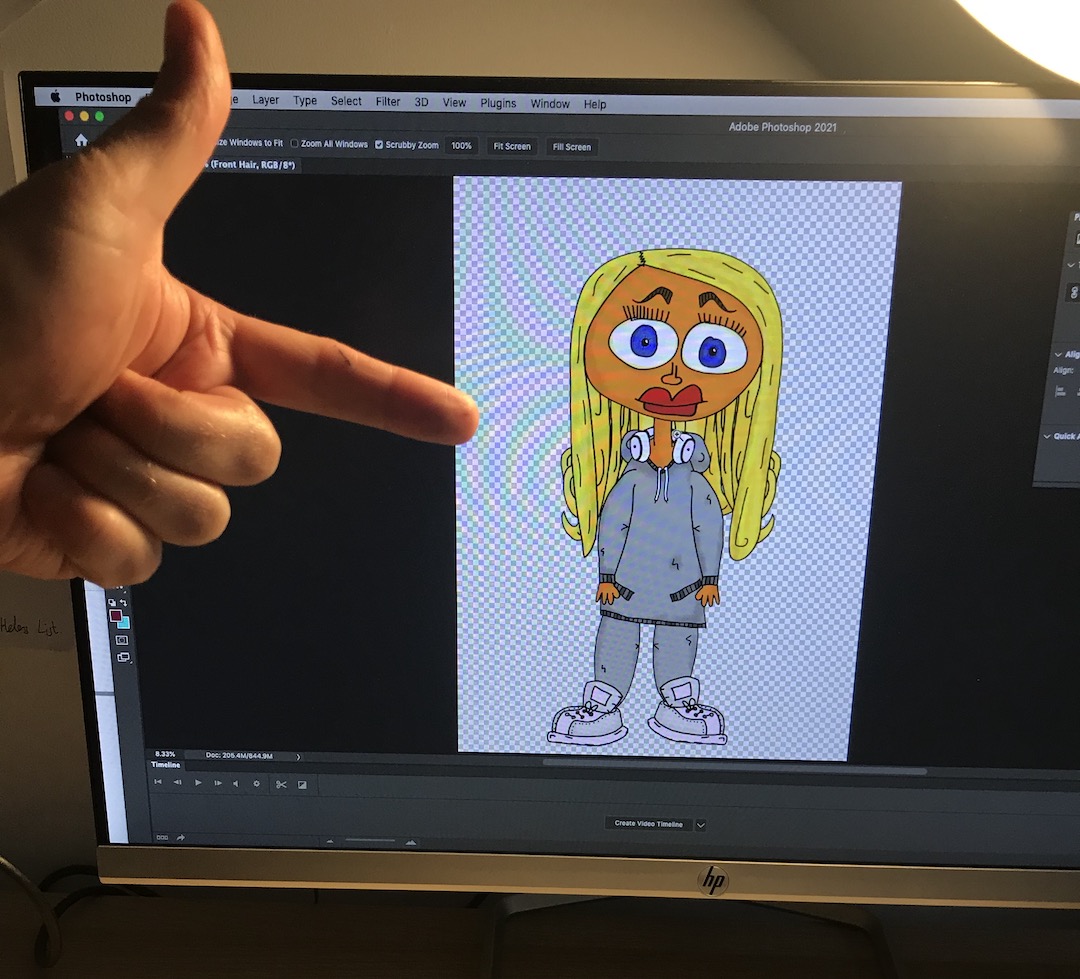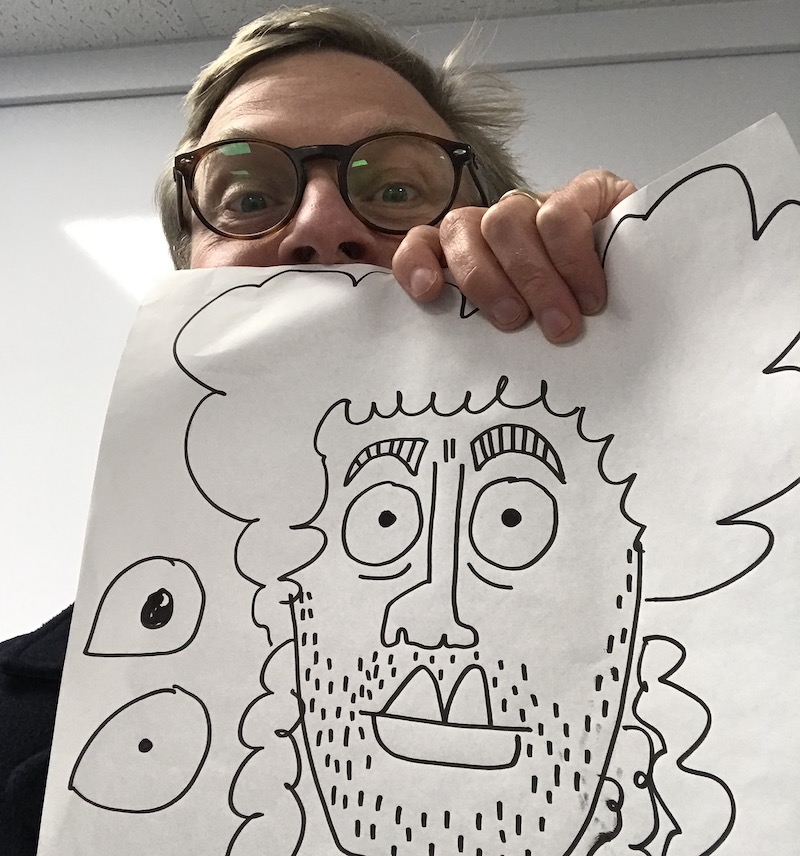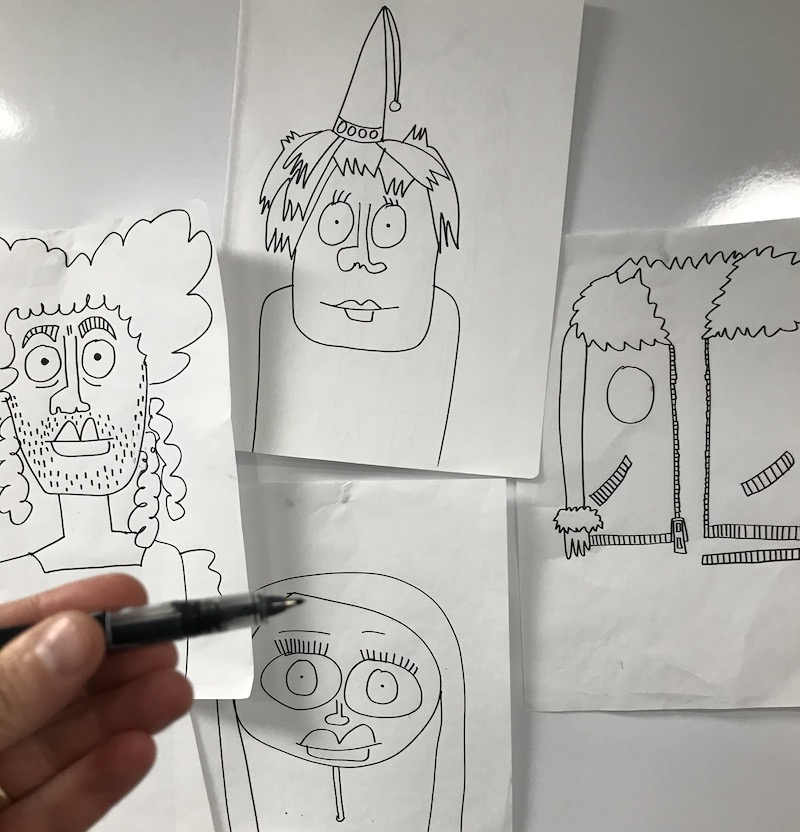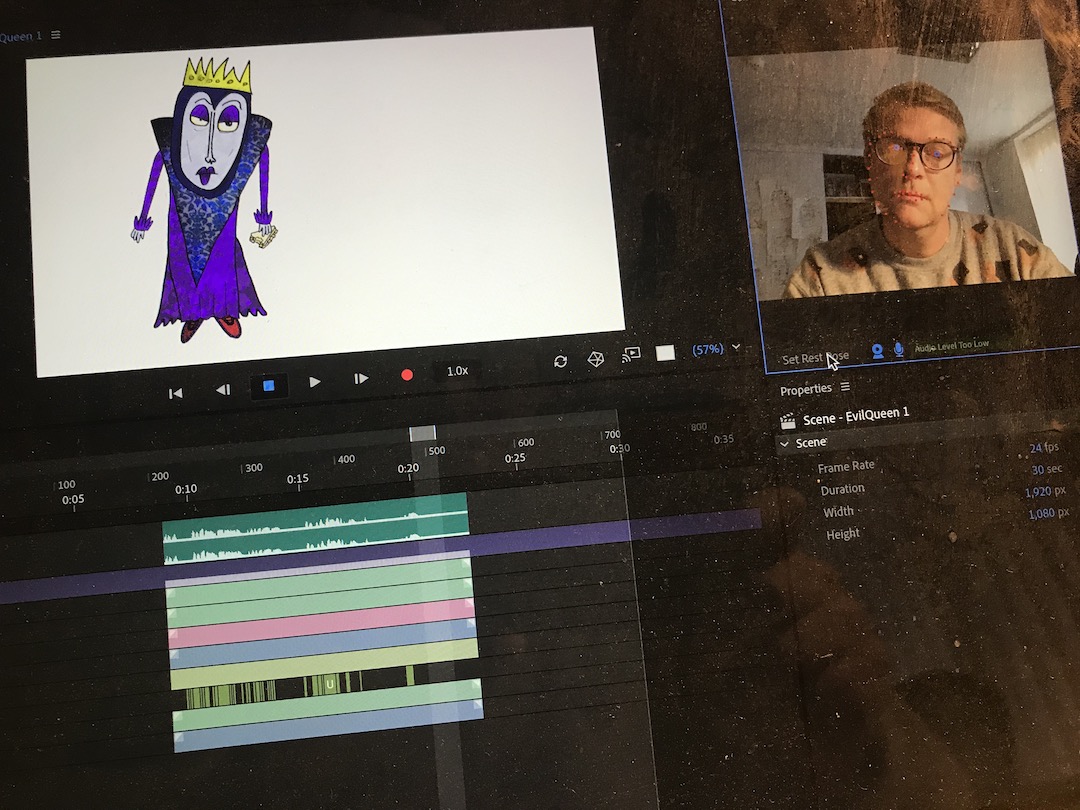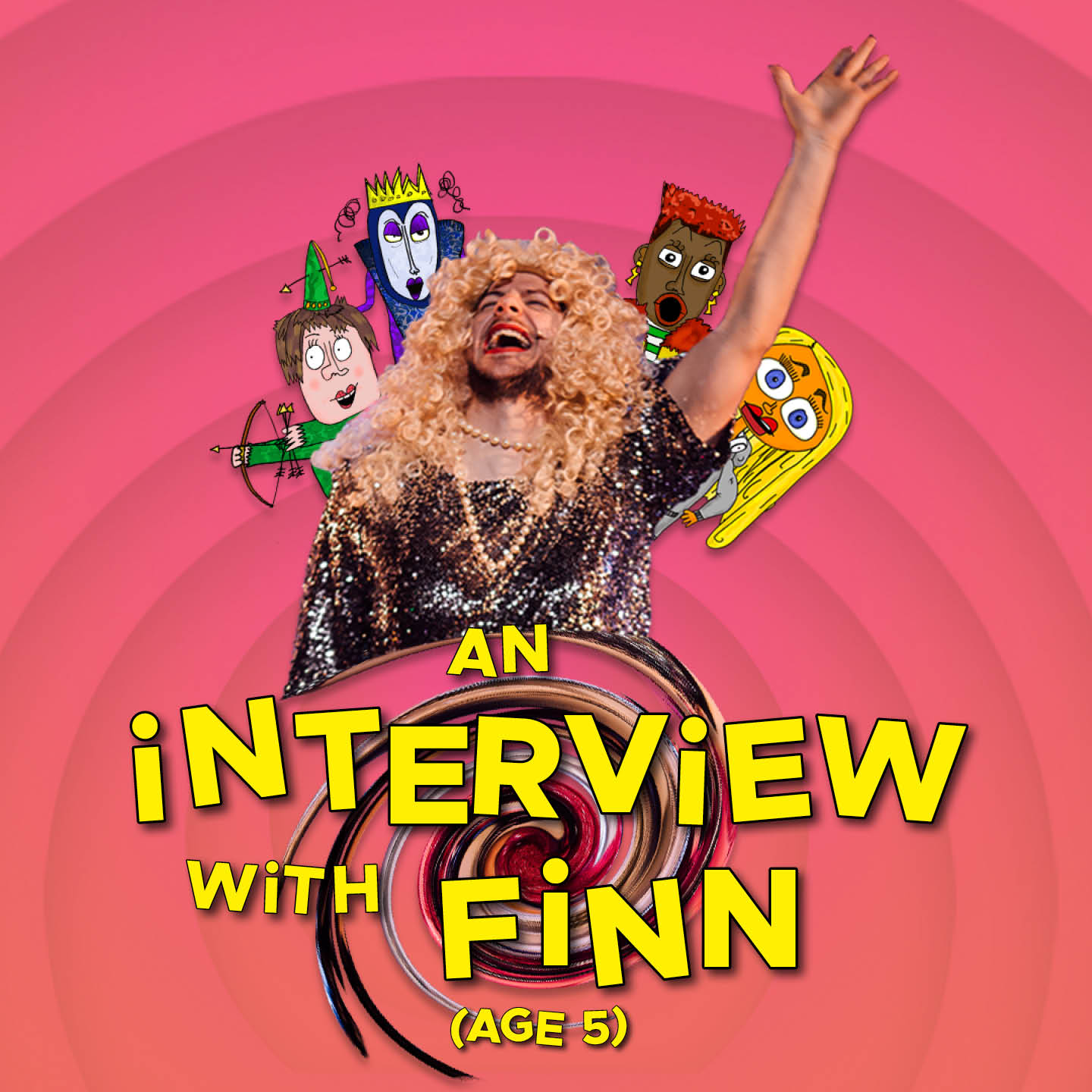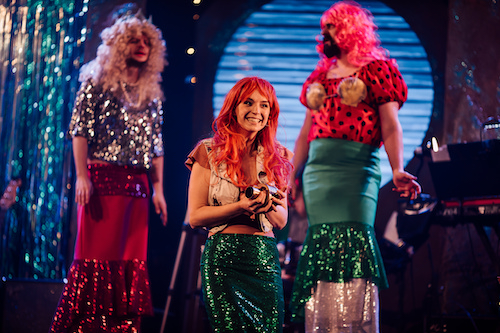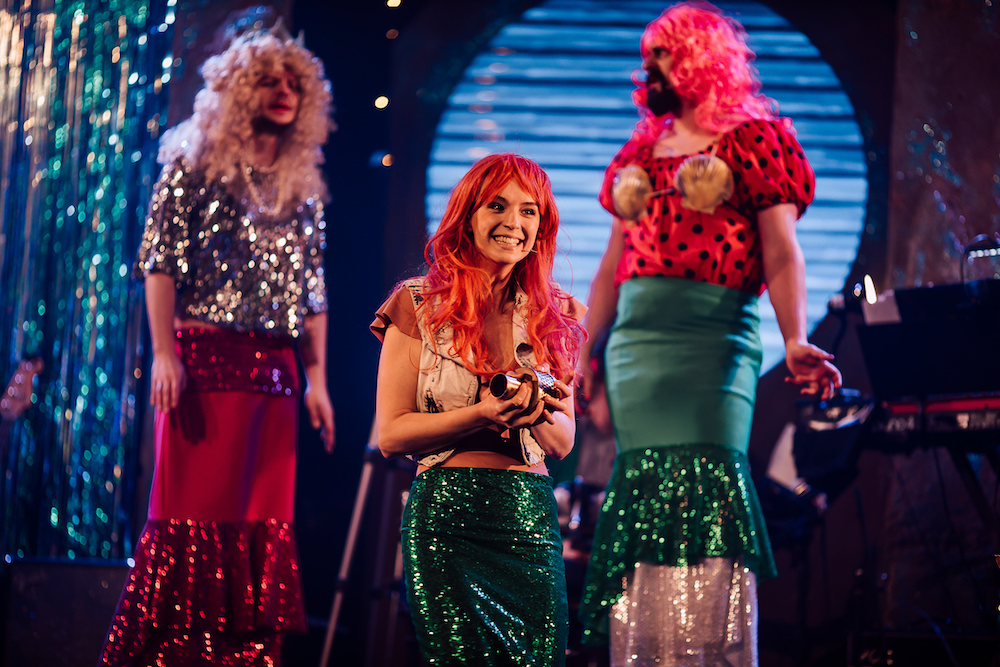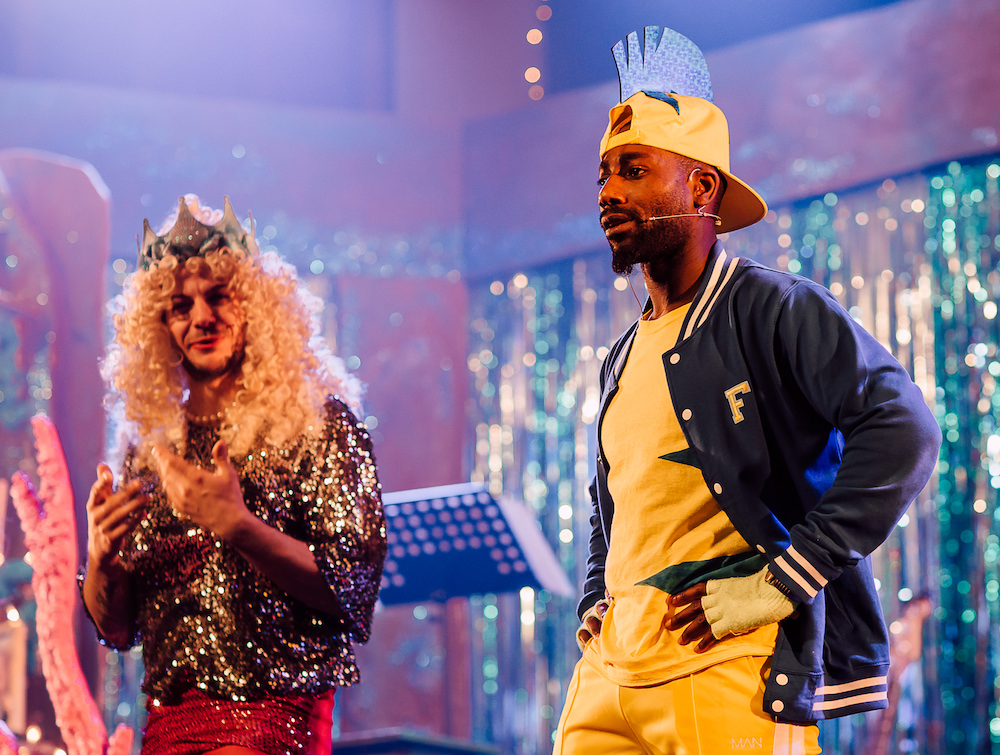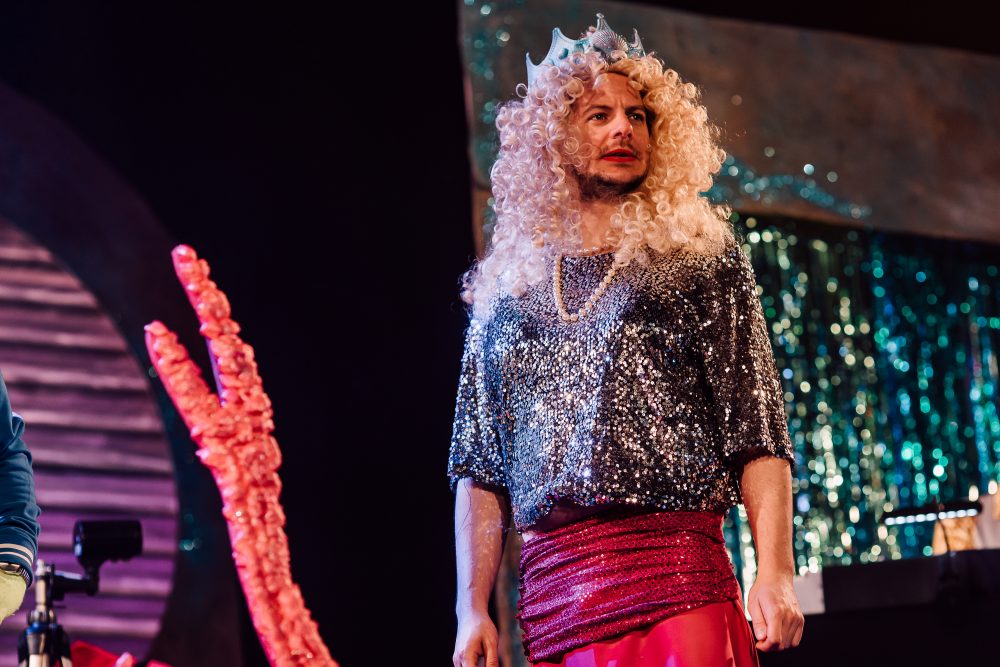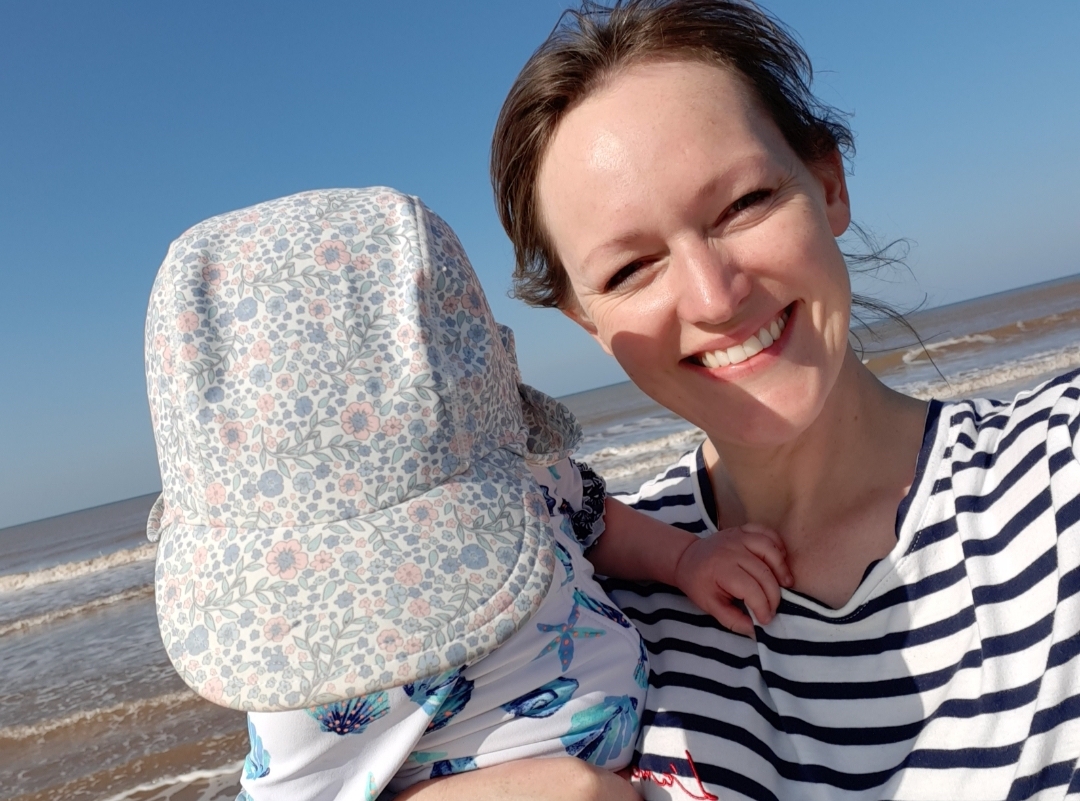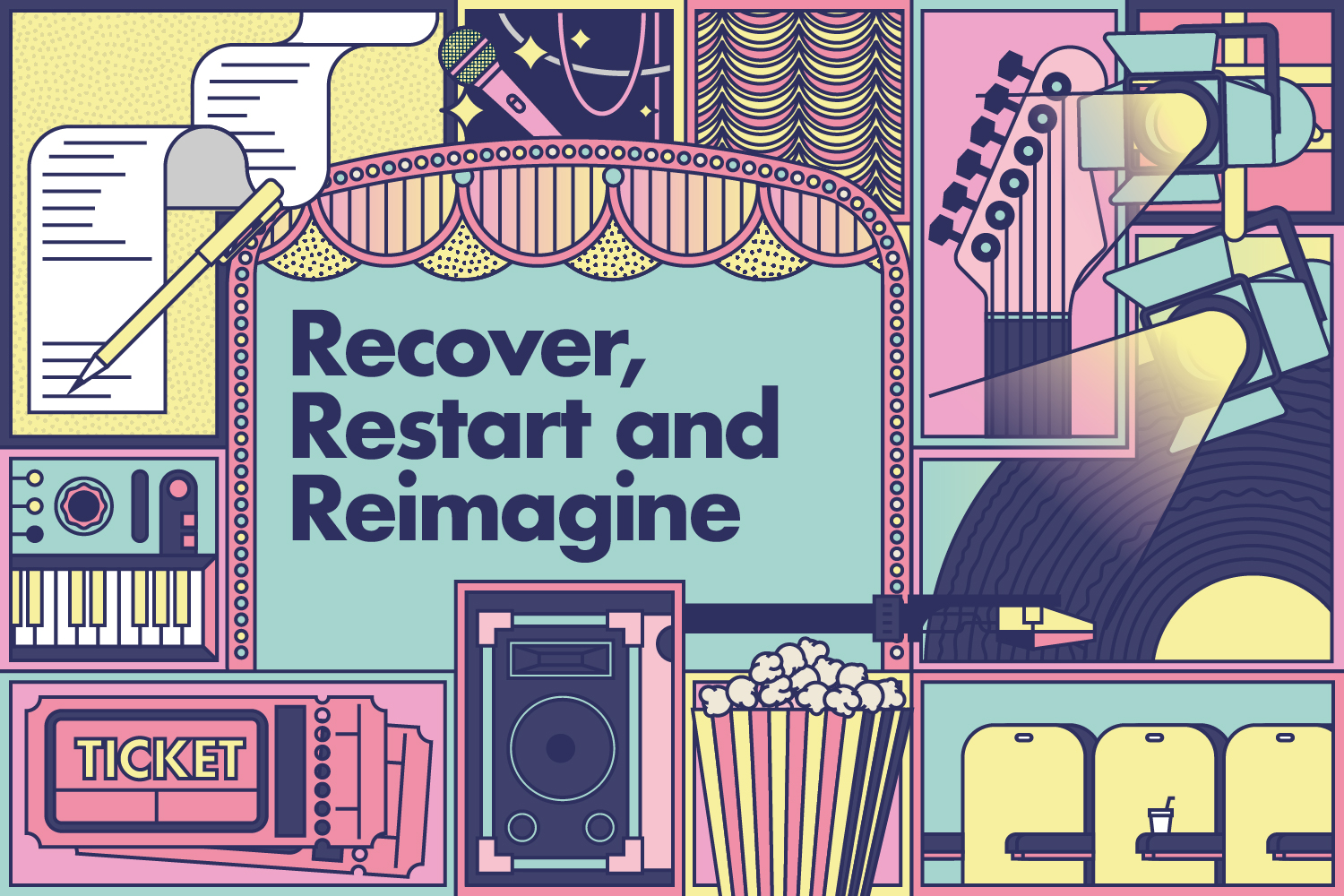

Artwork by Joseph Cox
By Paul Smith, artistic director
This time last year I wrote about how Middle Child were going quiet for a bit so that we could make more noise in future. A lot has happened since then, with more uncertainty crammed into a 12 month period than I can remember at any other point in my 34 years. During that period Middle Child, like all of us in the arts, have had to try new things, find new ways of working and try to keep hold of our purpose as the world twists and turns. It has been, without doubt, the hardest period in our company’s 10 year history as we – a company who exist to bring people together, celebrate liveness and fight for the underdog – lost projects, lost our home and, truthfully, lost everything we knew how to do. Speaking personally, the year has taken its toll, leading to a crisis of confidence, of purpose and of “is theatre really the best way we can put something good into the world?”
But with this introspection and amidst all of this uncertainty comes a unique kind of clarity. A clarity around values. Around why we do what we do. Around the decisions we need to make. And it is these core values that have guided the way for Middle Child throughout this entire pandemic and which have led us to each and every decision we have made along the way. They were central to our decision to start a fundraiser for freelancers who had lost income, our choice to introduce flexible working to our organisation and our decision to continue employing freelancers and investing in people throughout the pandemic.
They are also the cause of areas of hesitancy, caution and nervousness. They tangle us up in knots as we try to navigate complex issues and they dominate our conscience as we try to grow as a company in a way that feels “us”. Our values are what we return to when balancing creative ambition, financial sustainability, politics, morality, health and safety, work-life balance and straight-up uncomplicated ego. They are there when we consider whether to apply for the Cultural Recovery Fund, whether to put the panto online, whether to take over this new building or that one. When all else is dark it is these values that light the way and lead us onwards. And so, in deciding what to do next and how we ‘re-emerge’ from the pandemic we must do so guided by our values.
As a company whose guiding vision is for a fair and equitable world, where anyone’s story can be told and heard, it is clear that we simply cannot stand by and risk losing a generation of theatre workers either as a result of a pandemic or because of an industry that continues to be built to work only for a select few. And so we got to work.
On 11 March this year we hosted a day online, which we called Imagine the Future, that brought together a group of brilliant freelancers from theatre and further afield to help us consider four questions:
- What do you need post-pandemic?
- How do we better support freelancers?
- How can we be more inclusive as a city and a sector?
- What should an arts hub look like, feel like, what should happen there?
It was an incredible day, full of brilliant ideas, generosity and a conviction that things can be better. We listened, learnt and were left with an overwhelming number of great ideas for what the future could look like. We felt the weight of those conversations, and also of those that weren’t had, of those who weren’t there. We felt energised by the potential of our action and tired by the thought of its scale. We were inspired by possibility and overwhelmed by choice. We looked at the list of suggestions with optimism and then at our budget with pragmatism. A few things became clear:
- We can’t do everything. Not yet anyway.
- We can do something.
And so, what we are announcing today isn’t the “Middle Child 20 Year Action Plan for a Better World”, it’s simply our next “something”. It’s a something based on the listening, learning and reflecting we’ve been doing over the past year, and we truly believe it will make a genuine difference and is gently radical in its own way. And then one day soon we’ll announce another something, and another something and another something.
Recover, Restart and Reimagine
From both our Imagine the Future day and some of the wider reading we’ve been doing, such as from Freelancers Make Theatre Work, it’s clear that there are calls for deeper, more meaningful engagement with freelancers, a call for more equity and power to be distributed to freelancers, and a call for an investment in people, rather than projects. Our Recover, Restart and Reimagine programme is built on these three pillars and designed in response to an acknowledgment that the past 12 months have led to a loss of confidence, income and opportunity for freelancers across the sector.
Everyone at Middle Child is determined to contribute to a sustainable reimagining of our industry following the impact of the pandemic, and our first offer to this end is a partly-curated, partly-self-led programme, which will last for three weeks, paying 12 Hull freelancers £1,500 each to come together to rebuild confidence, develop skills and take stock.
The programme, which runs four days per week, 9am – 6pm, from 15 June to 2 July, represents a space to think, breathe and play without the pressure of coming up with an output. It is designed to inspire, stretch and develop participants in a safe space, which acknowledges what we’ve been through and the impact on our work and our practices. Everyone involved will be paid for their time and also benefit from a wide range of free workshops, masterclasses and training alongside group time, individual time and free time. To partially quote one of our Imagine the Future post-it notes, it’ll be a bit like Byker Grove meets a Rocky montage, but with a spa soundtrack.
The first week will be dedicated to recovery with a focus on wellbeing, self-care and reflection. Week two will focus on restarting with time to refresh skills, make plans and try something new. Week three will be all about reimagining, with time spent envisioning the future, dreaming about what it should look like and putting actions in place to make it happen. Alongside all of this run a number of recurring events, from group play readings and coffee mornings to skill sharings and open discussions. We’ll create our own haven fuelled by respect, curiosity and care.
Our ambition is for these three weeks to be transformative for all who take part with participants leaving feeling ready for the battles ahead but not burnt out by deadlines or pressures of output.
We would love to hear from people who live and work in Hull and who contribute to making theatre in any way, be it through acting, directing, designing, stage managing, producing, composing or any other role you might find in a show programme. We want applications from those we know and those we don’t, from people at the very beginning of their career to those who’ve been around a while. We welcome and encourage applications from everyone regardless of their age, race, religion or belief, sexual orientation, gender identity, ethnicity, disability or nationality.
We are a PiPA (Parents and Carers in Performing Arts) partner and are always happy to discuss solutions that allow people to balance caring responsibilities with working lives, for example through sharing a place on the programme or a flexible attendance arrangement.
You can apply because you know exactly what you want from life, or because you have no idea. We’re as interested in chaos and confusion as we are in clarity and certainty. Our application process is simple and straightforward, and all we ask for is honesty and for you to be yourself. In line with ongoing efforts to decentralise power and decision making in our organisation, choices around selection for this programme will be informed by an advisory panel of freelancers.
This programme is representative of our ongoing desire to offer practical solutions, and take action to return with renewed energy for an improved theatre industry. We believe this radical programme, which invests in people, rather than projects, represents a good first step in doing so locally and is a meaningful investment in the freelancers upon whom our work depends.
We will continue to listen, take stock and lead necessary action across other areas of our company to improve what we do, and how we do it. There is much more happening in the background that we will talk about when we can, but for now we hope this programme is an exciting offer, which is proof that we will turn words into value-led action as we build a better future together.
- Find out more about Recover, Restart and Reimagine
